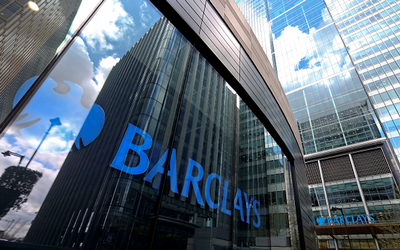BARCLAYS Africa’s British parent company has pulled out of SA before, only to come back through Absa, so this is not new. SA must see it as an opportunity more than a loss.
Barclays has done nothing to reduce inequality or boost SA’s economic growth. On the contrary, the banking sector continues to be part of the problem by failing to allocate credit appropriately or extend banking services to more of the 12-million poor people who remain without bank accounts.
Beyond the principle and ideological need to dismantle capitalism in SA, which is deeply rooted through the alliance between British and Afrikaner capital and is characterised by the exploitation of the black working class, this is an opportunity for SA and the rest of Africa to create a state-owned bank.
Setting up such a bank is essential for the development of the continent’s economy, as it can progressively enhance state-owned development finance institutions and provide finance in a manner that promotes development instead of the narrow pursuit of profits.
SA must not be concerned by Barclays’ decision to disinvest. Of more concern are loopholes when it comes to the taxation of capital, which threatens SA’s financial sovereignty and undermines redistribution, especially in an era of high capital flight, illicit financial flows and aggressive tax avoidance.
Barclays’ exit must be seen as a wake-up call to the Treasury, South African Reserve Bank and South African Revenue Service , to preserve the country’s financial sovereignty. It is multinational banks that serve as a conduit for unlawful money flows.
Those who argue that if divestment from SA continues, we will not be able to avoid a credit downgrade to junk status are missing the point. There is no avoiding it, it is only a matter of time.
Gumani Tshimomola
Senior researcher, Economic Freedom Fighters parliamentary caucus

Picture: BLOOMBERG/CHRIS RATCLIFFE
BARCLAYS Africa’s British parent company has pulled out of SA before, only to come back through Absa, so this is not new. SA must see it as an opportunity more than a loss.
Barclays has done nothing to reduce inequality or boost SA’s economic growth. On the contrary, the banking sector continues to be part of the problem by failing to allocate credit appropriately or extend banking services to more of the 12-million poor people who remain without bank accounts.
Beyond the principle and ideological need to dismantle capitalism in SA, which is deeply rooted through the alliance between British and Afrikaner capital and is characterised by the exploitation of the black working class, this is an opportunity for SA and the rest of Africa to create a state-owned bank.
Setting up such a bank is essential for the development of the continent’s economy, as it can progressively enhance state-owned development finance institutions and provide finance in a manner that promotes development instead of the narrow pursuit of profits.
SA must not be concerned by Barclays’ decision to disinvest. Of more concern are loopholes when it comes to the taxation of capital, which threatens SA’s financial sovereignty and undermines redistribution, especially in an era of high capital flight, illicit financial flows and aggressive tax avoidance.
Barclays’ exit must be seen as a wake-up call to the Treasury, South African Reserve Bank and South African Revenue Service , to preserve the country’s financial sovereignty. It is multinational banks that serve as a conduit for unlawful money flows.
Those who argue that if divestment from SA continues, we will not be able to avoid a credit downgrade to junk status are missing the point. There is no avoiding it, it is only a matter of time.
Gumani Tshimomola
Senior researcher, Economic Freedom Fighters parliamentary caucus






















Change: 0.65%
Change: 0.61%
Change: -0.09%
Change: 0.15%
Change: 3.02%
Data supplied by Profile Data
Change: 0.42%
Change: 0.26%
Change: 0.65%
Change: 0.00%
Change: 0.35%
Data supplied by Profile Data
Change: 0.05%
Change: -0.10%
Change: 0.17%
Change: 0.07%
Change: 0.46%
Data supplied by Profile Data
Change: 1.16%
Change: 1.80%
Change: 2.51%
Change: 0.56%
Change: -0.43%
Data supplied by Profile Data